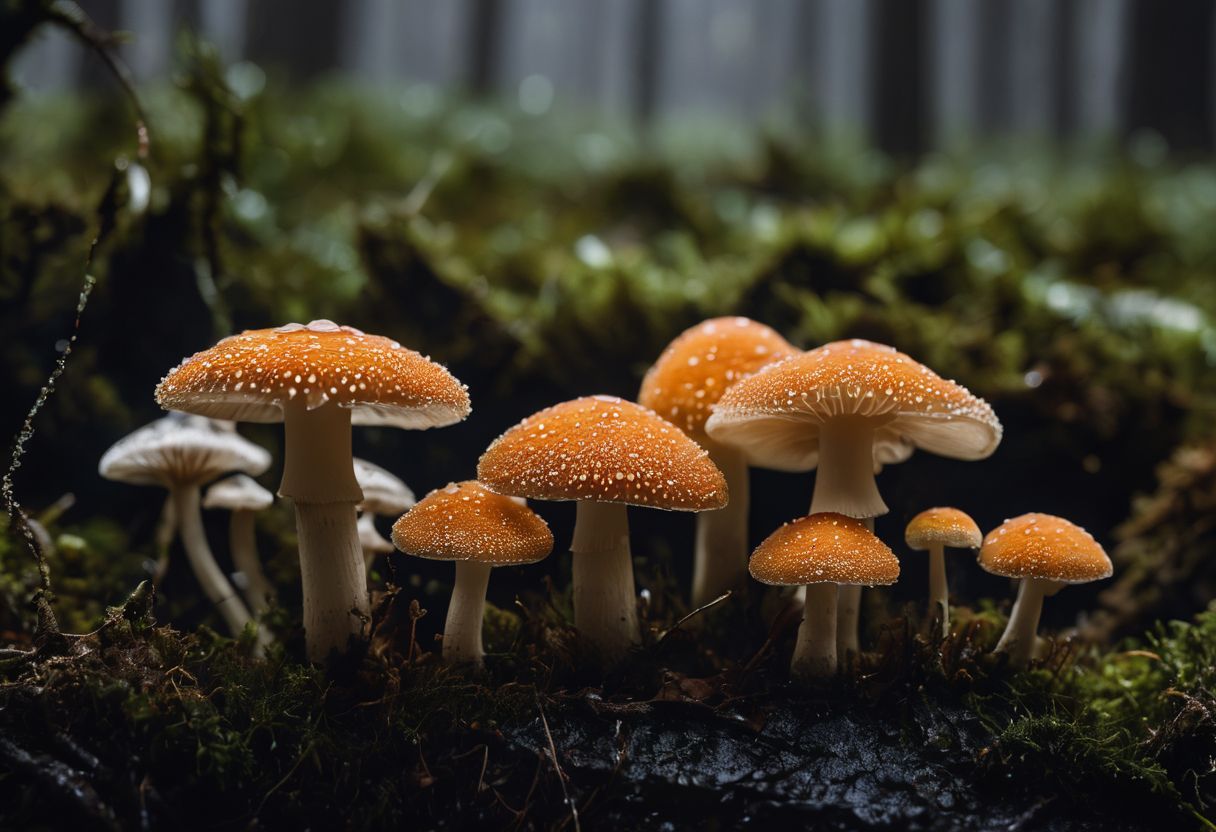 In recent years, there has been a growing interest in mushrooms that extends far beyond culinary applications. These remarkable organisms, often regarded as a type of fungi, are captivating the attention of scientists, health enthusiasts, and foodies alike. In this article, we will explore the increasing interest in mushrooms and their diverse roles in science, cuisine, and health.
In recent years, there has been a growing interest in mushrooms that extends far beyond culinary applications. These remarkable organisms, often regarded as a type of fungi, are captivating the attention of scientists, health enthusiasts, and foodies alike. In this article, we will explore the increasing interest in mushrooms and their diverse roles in science, cuisine, and health.
The Mycological Renaissance:
Scientific Discoveries:
Scientists are uncovering the incredible potential of mushrooms in various fields. From bioremediation (using mushrooms to clean up environmental pollutants) to mycoremediation (utilizing fungi to rehabilitate damaged ecosystems), these organisms are proving to be essential allies in addressing environmental challenges.
Medicinal Marvels:
Mushrooms are being hailed for their medicinal properties. Certain species, such as reishi, lion’s mane, and chaga, are rich in bioactive compounds that have shown potential in supporting the immune system, reducing inflammation, and even enhancing cognitive function.
Culinary Creativity:
Mushrooms are celebrated for their culinary versatility. They add depth, umami, and unique flavors to dishes, making them a favorite ingredient among chefs and home cooks. Varieties like shiitake, oyster, and porcini are prized for their culinary contributions.
Sustainability:
As a sustainable source of protein and other essential nutrients, mushrooms are gaining attention as a potential solution to global food security and resource conservation challenges. Mushroom cultivation requires minimal space, water, and energy, making it an eco-friendly option.
Psychedelic Research:
Psilocybin-containing mushrooms have sparked interest in the field of mental health. Clinical trials are exploring the potential of these mushrooms in treating conditions like depression, anxiety, and post-traumatic stress disorder (PTSD).
DIY Cultivation:
Mushroom cultivation has become a popular hobby for enthusiasts. With the accessibility of home mushroom-growing kits and educational resources, more people are exploring the world of mycology from the comfort of their homes.
Health Benefits and Culinary Delights:
Immune Support:
Mushrooms contain beta-glucans, polysaccharides that have immune-enhancing properties. Regular consumption of mushrooms may help boost the body’s natural defenses.
Brain Health:
Lion’s mane mushroom is renowned for its potential to support brain health and cognitive function. It contains compounds that may stimulate the growth of nerve cells.
Antioxidant Power:
Many mushrooms are rich in antioxidants, which can help protect cells from oxidative stress and reduce the risk of chronic diseases.
Delicious Dishes:
From creamy mushroom risottos to hearty portobello burgers, mushrooms offer endless culinary possibilities. They can be roasted, sautéed, stuffed, or blended into soups and sauces.
Conclusion:
The growing interest in mushrooms is a testament to the diverse and multifaceted nature of these organisms. Whether as sources of nourishment, tools for ecological restoration, or potential breakthroughs in medicine, mushrooms continue to captivate our imagination and drive innovation in various fields. As our understanding of mushrooms deepens, we can look forward to a future where these humble fungi play an increasingly significant role in our lives. Whether you’re a forager, a scientist, a chef, or simply a curious enthusiast, the world of mushrooms offers endless opportunities for exploration and discovery.




More Stories
Unveiling the Pros and Cons
Nourishing a Healthier Future
Nourishing Our Planet for Future Generations